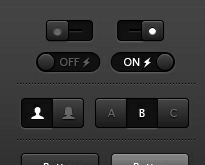Last Updated on February 28, 2024
Customer relationship management (CRM) is a widely implemented model for managing a company’s interactions with customers, clients, and sales prospects. It involves using technology to organize, automate, and synchronize business processes—principally sales activities, but also those for marketing, customer service, and technical support. When properly implemented, a CRM system can have a tremendous impact on the bottom line of a company. Having a CRM system in place allows companies to:
- Organize and streamline their processes
- Identify and prioritize high ROI customers
- Increase customer retention
- Quickly measure and assess new initiatives in real-time, identify emerging trends, and optimize marketing campaigns using up to date, accurate data
- Automate implementation of redundant sales processes
- Monitor and optimize customer service response time
With CRM systems becoming a virtual necessity in competitive markets, businesses looking to implement a CRM solution must choose from a huge range of CRM solutions with a wide assortment of functionality and price points. Because the features, functionality and implementation costs of a CRM solution can be so vital to an organization’s bottom line, the implementation of a CRM solution requires considerable forethought. Before selecting a CRM, it’s vital that your company take careful stock of its internal needs.

Image Credit: Depositphotos.com
SaaS vs. On-Premise CRM
One of the most common questions raised in selecting a CRM is whether an organization should go with a traditional on-premise CRM or a Software-as-a-Service – also known as SaaS – solution. The technical differences between on-premise and SaaS solutions are significant.
On-Premise CRMs
On-premise CRM solutions are usually installed like most traditional enterprise software – on a local server that sits behind the company’s firewall – which is accessed via each employee’s desktop. The organization’s in-house IT staff generally manages the overhead of maintaining the system, including installation and upgrades, server and data maintenance, networking and security, backups, and ensuring that the software and hardware are running at peak efficiency.
While having an on-premise CRM generally means more headache and costs in terms of IT support, it generally allows for greater control and customization over the environment and is easier to integrate into other on-premise systems. And while it usually has a higher up-front cost compared to SaaS solutions, large companies may save money in the long run choosing an on-premise CRM solution.
Some of the most popular off-the-shelf on-premise CRMs include:
- Siebel CRM
- SAP
- Microsoft Dynamics CRM
- Sugar CRM
- SalesLogix
Software-as-a-Service (SaaS) CRMs

In contrast to on-premise CRM systems, the technical complexity of SaaS systems are completely hidden from user. SaaS CRMs do not require dependence on inhouse IT staff for support, thus reducing IT staffing requirements and costs. This also allows for faster software deployment and quicker upgrades. Because SaaS systems are sold as subscription services, there is also less financial commitment up front.
Perhaps the trade off for the technical simplicity is the reduced control over data and security. While this may be a concern to some, most SaaS vendors have tighter security than what the majority of their customers could implement on their own. Nonetheless, organizations should do through due diligence, and ensure for themselves that the SaaS vendor’s security setup is airtight.
The size of your company may also affect your decision whether to go with a SaaS CRM. Traditionally, the thinking has been that larger companies with a well established IT team in place may benefit from the front-loaded pricing of the on-premise model, while smaller companies can leverage the scalability of SaaS solutions. Recently however, Ray Wang – an analyst at the research firm Forrester – has suggested that for companies with 50-100 users, a SaaS CRM is the clear choice, while even companies with 250-500 users should strongly consider a SaaS solution.
Some popular SaaS CRMs include:
- Salesforce
- Nimble
- RightNow
- Oracle On Demand
- SAP
While the question of whether to choose an on-Premise or SaaS should be carefully considered, it’s far from the most important factor in selecting a CRM. The important questions to ask are the ones based on internal business needs. Which business processes and customers can benefit most from a CRM system, and what features and functionality are needed to serve those processes and customers?
How will the new system benefit customers, your sales team, and management? Because your CRM will be highly integrated with your business processes, asking the fundamental baseline questions that drive ROI will be the most important aspect of choosing the right CRM solution for your business.
Did you enjoy this article? We would love to hear your thoughts, so don’t be shy and comment below! Please don’t forget to subscribe to our RSS-feed or follow Inspirationfeed on Twitter, Google+ and Facebook! If you enjoyed the following article we humbly ask you to comment, and help us spread the word!

